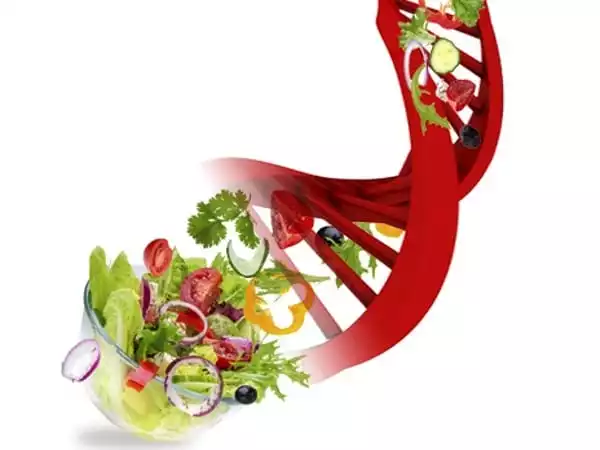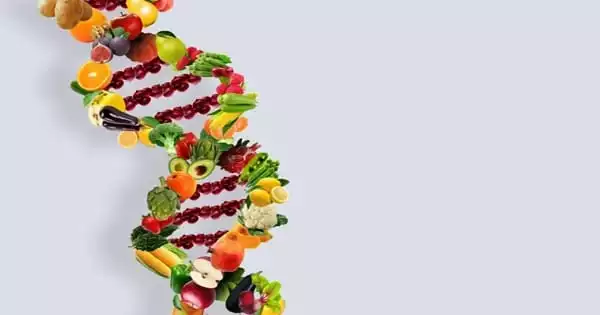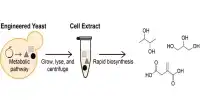Food preferences are formed as a result of a variety of circumstances, and they can shift over time and with varied taste experiences. For example, up to 14% of people have a genetic mutation that causes cilantro to taste like soap. If this is the case, there isn’t much you can do to improve the herb’s taste.
According to a new study, modest genetic changes can alter the ability to use the energy of certain nutrients. This study demonstrates how nutritional planning based on genetic data can help to advance individualized nutrition for health.
All animals require carbohydrates, proteins, and lipids to survive. However, nutritional differences between species, communities, and individuals can be substantial. In an international collaborative study, researchers from Australia, Denmark and Finland investigated how individuals of a same population differ in their ability to survive on various diets.
The scientists used a genetic reference panel of approximately 200 closely related fruit fly strains (Drosophila melanogaster). The flies were fed six different diets that were heavy in protein, sugar, starch, coconut oil or lard, or a combination of sugar and lard. The strains employed in the study had their genomes fully mapped, allowing the researchers to attribute the variations observed in the studies to specific genetic variants.
Research is progressively demonstrating how metabolic responses to nutrition varies between animal populations and individuals. Traditional dietary recommendations are not always appropriate for everyone, which explains the ongoing lack of agreement on what constitutes a “healthy diet”.
Essi Havula
The study discovered that modest genetic changes altered the flies’ ability to use the energy of diverse diets. “Surprisingly, we discovered that the fruit fly strains differed significantly in their capacity to survive on a high-sugar diet. This is especially surprising given that the food ingested by fruit flies in nature contains a high concentration of carbohydrates “Essi Havula, the study’s primary author and currently a postdoctoral researcher at the University of Helsinki, comments
“The genes that regulate metabolism have been largely conserved in evolution, which is why we can learn a lot about human metabolism from studies done with fruit flies,” Havula adds.
Genetic analyses uncover several genes that affect nutrient tolerance
The researchers discovered a number of genes that contribute to flies’ ability to handle sugar through genomic analysis. The majority of these genes are also found in humans and have been linked to obesity and type 2 diabetes in earlier genome-wide association studies.
“Fly studies allow for quick and low-cost functional studies to examine the genes in depth. We demonstrated, among other things, that the tailless gene (TLX), which had previously been studied exclusively from the standpoint of nervous system function and development, is required for appropriate sugar metabolism in flies” According to Havula.

In addition, the researchers demonstrated that the JNK pathway, one of the most important stress-signalling pathways, regulated sugar metabolism and storage-fat synthesis in the case of high-sugar diets in the study.
“It appears that dietary sugar causes stress to the cells, giving the JNK pathway an important role in how effectively flies tolerate and process sugar,” Havula says.
Can nutrigenomics assist the development of personalised nutrition?
The majority of the findings, according to the researchers, can be applicable to humans as well, though more research is required. According to Havula, the study gives tangible evidence that the same dietary guidelines do not always suit everyone.
“Research is progressively demonstrating how metabolic responses to nutrition varies between animal populations and individuals. Traditional dietary recommendations are not always appropriate for everyone, which explains the ongoing lack of agreement on what constitutes a “healthy diet”.”
One possibility is to use nutrigenomics to develop nutrition in a more personalized direction.
“Hopefully, in the future, type 2 diabetes and many other metabolic illnesses will be managed with nutritional planning based on individual genomic knowledge. This would be far less expensive than pharmacological therapy and far better for people’s health in the long term “says Havula
The potential of nutrigenomics extends beyond the treatment of typical metabolic illnesses. “For example, cancer cells are known to alter their metabolism, extending the promise of nutrigenomics to a wide range of sectors,” Havula adds.
Nutrition can either directly or indirectly contribute to disease development or appearance. Nutrients and meals typically interact with genes in a benign manner, but this interaction can have disastrous consequences.
Humans are affected by both environmental and hereditary influences; both factors must be treated equally in order to maintain an individual’s normal health status. Previous research has largely focused on the effect of environmental factors alone or on genes alone, but not on both at the same time. Recently, research has been designed to investigate the interplay of genes and nutrition.














